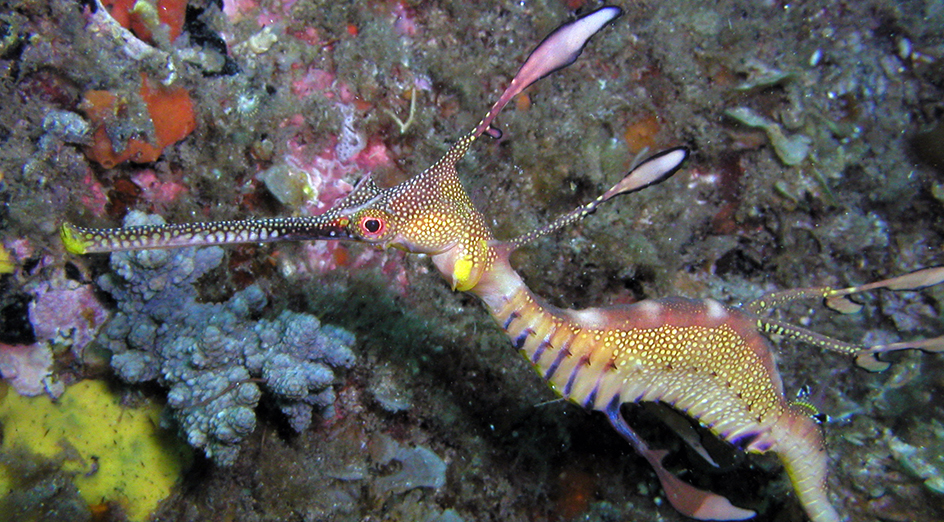Intricate genetic research has proven the charming and elusive weedy seadragon – a fish found only off the coast of southern Australia – is just one big happy species, not two subspecies as previously thought.
"This is important information for the management of these species and tracking any range reductions is critical as animals are predicted to keep moving to cooler waters."
Dr Nerida Wilson
The University of Western Australia was part of an international team that studied the weedy seadragon using modern genetic sequencing across many populations, which span more than 5000km of ocean along the Great Southern Reef.
Seadragons, known for their unique camouflage and striking colours, are difficult to find in underwater habitats, meaning keen-eyed researchers had to spend many long hours in the water to gather samples for the dataset.
They took small tissue clips of the fishes' leaf-like adornments that are not used for swimming, and where possible used existing samples from museum collections and aquaria to generate extensive genomic data.
 Image: A weedy seadragon.
Image: A weedy seadragon.
Their findings – that a single gene flow connects all species of weedy seadragon – disproves a previous hypothesis that the east coast of Australia may hold a separate subspecies.
The study also found low genetic diversity in some areas, particularly on the west and the east edges of their distribution, which are predicted to be strongly impacted by climate change.
Study co-author Dr Nerida Wilson, an Adjunct Research Fellow in UWA's School of Biological Sciences, said this type of genetic research was crucial to the successful management of marine species in the face of climate change.
"This is important information for the management of these species and tracking any range reductions is critical as animals are predicted to keep moving to cooler waters," Dr Wilson said.
"Applying genomic tools to issues in marine wildlife forensics has huge potential and will assist with better management of our precious marine animals."
The study, published in BMC Biology, also incorporated the work of The University of Copenhagen and the University of California San Diego.






